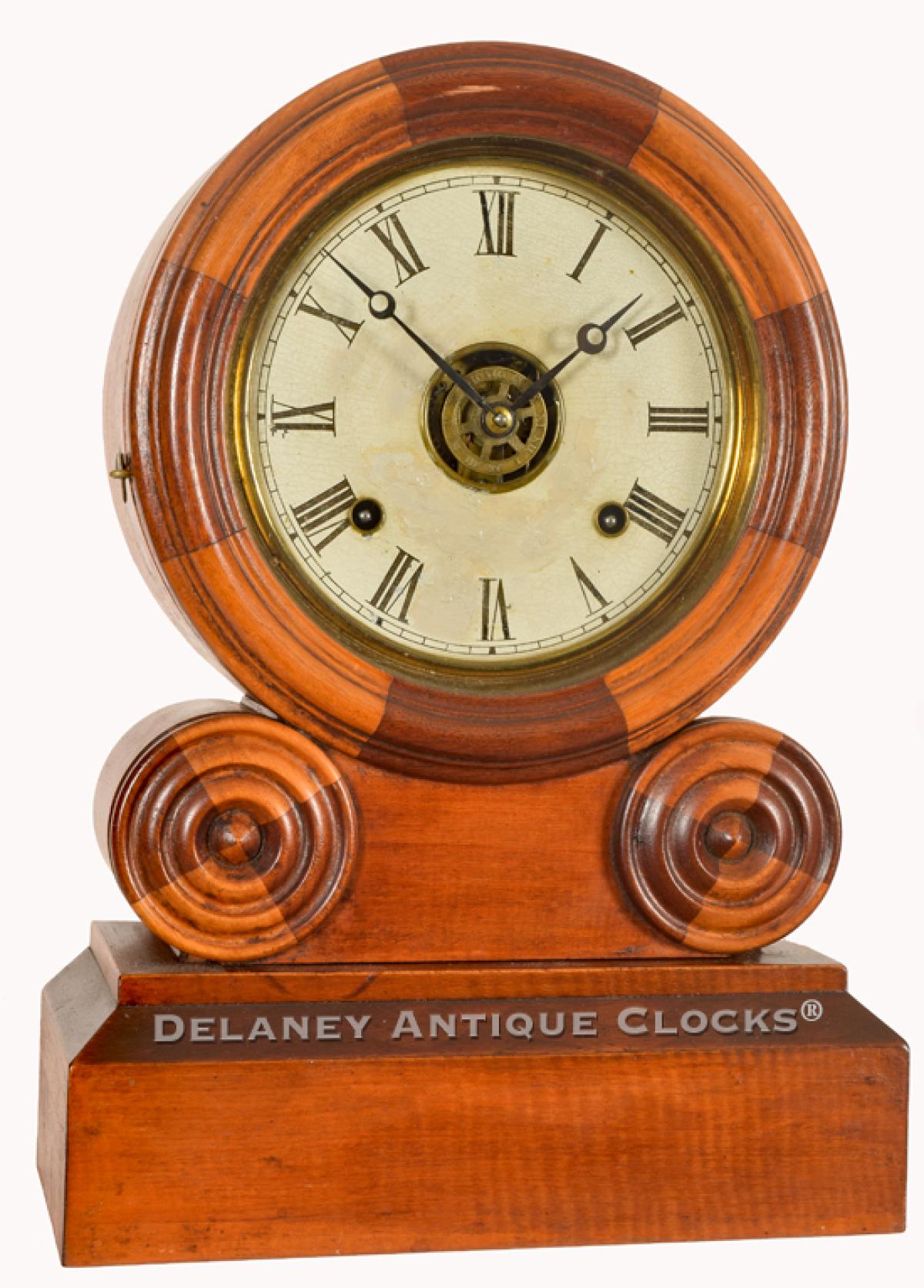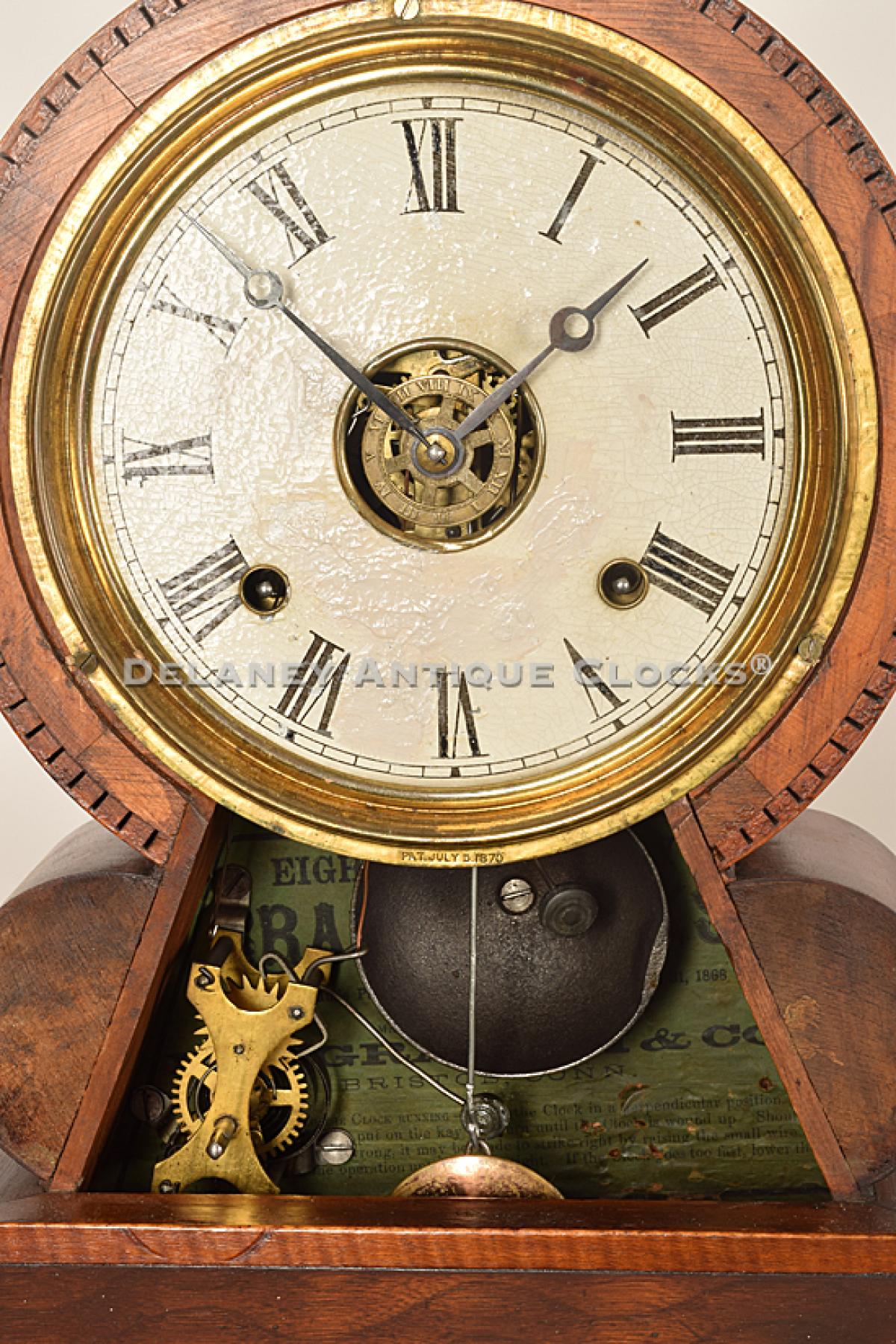Ingraham & Company of Bristol, Connecticut. “Grecian Mosaic.” 8-day time, strike, and alarm. 220081.
The Ingrahams and their many firms were in business from 1828 to 1978, some 150 years. This model has become increasingly collectible within the last twenty years. This is due to the compact size of the case, the interesting form, and the colorful formatting of the wood used in its construction.
This unusual “Grecian” model is constructed in a mixed wood case comprising maple and walnut. This example retains an older finish that has mellowed over its history. The color is excellent.
The paper dial is original to the clock and is pasted on a tin or zinc pan that is trimmed with a brass ring. This dial has experienced some loss and has been professionally and successfully restored.
The spring-driven movement is brass construction and designed to run for eight days fully wound and to strike each hour on a cast iron bell that is mounted inside the case to the backboard. An alarm mechanism is also fitted inside the case. It is powered by its coil spring and is set independently of the main movement. This would have been fitted to this clock at the time of manufacture at an additional charge.
The manufacturer’s green paper label is in very good original condition and is pasted on the inside of the backboard. The label for the case patent is pasted to the back of the door. Elias Ingraham was a case maker and designed this case style. He was granted a patent on May 30, 1871.
This very collectible clock was made circa 1875. It stands approximately 15 inches tall, 10.25 inches wide, and just under 4.5 inches deep.
Inventory number 221081.
Elias Ingraham was born in Marlborough, Connecticut, on October 1, 1805. He worked as a cabinetmaking apprentice for five years in Glastonbury. In 1825, he purchased his freedom and began working as a journeyman for Daniel Dewy of Hartford. In 1828, Solomon Hinman convinced him to move to Bristol and to make clock cases for George Mitchell. It is here that Ingraham designed and constructed the “Transitional” shelf clock form. Ingraham soon moves on and works for several other clock and furniture ventures. After numerous ventures, he formed the Elias Ingraham & Company in 1857 and was granted the first two patents in case design. The first was for the “Arch Column case, and the second was for the door design found in this example, having two circular doors separated by decorative rosettes. This design became extremely popular, and its influence finds its why in some of Ingraham’s competitor’s models. In 1860, the firm’s name changed to E. Ingraham & Company, reflecting a partnership with his son Edward. Elias died at his summer home on Martha’s Vineyard in August 1885. The business continued in various forms.






